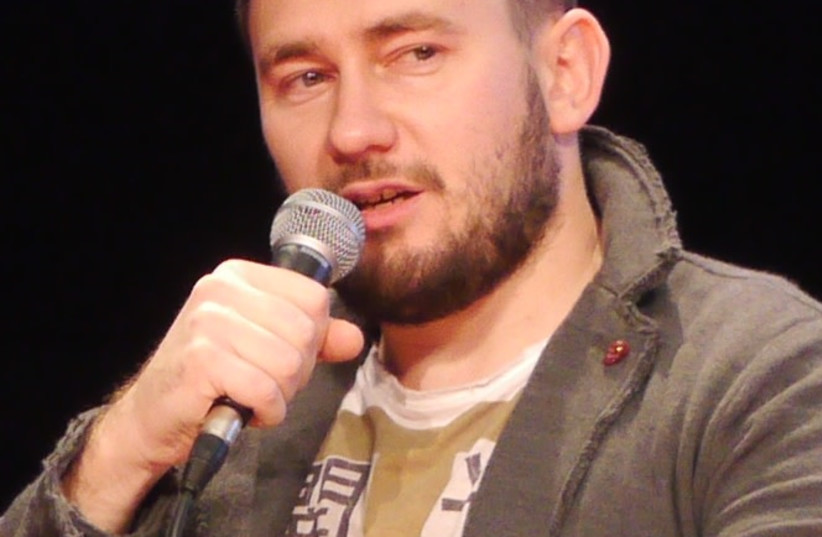Russia on Tuesday placed Dmitry Glukhovsky, a popular Russian-Israeli science fiction writer, on its wanted list after accusing him of spreading false information about its military intervention in Ukraine.
In a post on the Telegram messaging app, Glukhovsky wrote that he stood accused of discrediting Russia's armed forces in an Instagram post he uploaded in March.
"I am ready to repeat everything said there: "Stop the war! Admit that this is a war against an entire nation and stop it!" he wrote.
The Interior Ministry's website listed Glukhovsky, best known for the Metro 2033 sci-fi novel and its sequels, as wanted under an unspecified article of the criminal code.
Born in Russia, Glukhovsky was raised by a Jewish father and came to Israel to study at the Hebrew University of Jerusalem, where he wrote Metro 2033.

The series was later adapted into a popular and critically acclaimed video game series made by Ukrainian video game developer A4 Games, which has also worked to help raise funds for their country amid the ongoing Russian invasion.
The series, which covers the aftermath of a nuclear war where the survivors live beneath the Moscow metro, has been used by Glukhovsky in many of his criticisms of the Russian invasion of Ukraine.
The author also worked as a journalist in Israel, covering the Second Lebanon War in 2006.
Dissidents' reactions
Russia has already targeted opposition figures and journalists with a law seeking jail terms of up to 15 years for those convicted of intentionally spreading "fake" news about Russia's military.
Glukhovsky is the first major cultural figure to be put on the wanted list due to the new law, adopted days after Russia sent troops into Ukraine on February 24.
The case against Glukhovsky, who has been outspoken on social media about Moscow's military campaign, prompted indignation among Russian opposition figures.
"Putin used to fear politicians, but now he fears writers, too," Lyubov Sobol, an ally of jailed Kremlin critic Alexei Navalny, wrote on Twitter.
The team of another jailed opposition activist, Andrei Pivovarov, tweeted in response to Glukhovsky's addition to the wanted list: "The repression machine will roll everyone over."
Moscow says its "special military operation" is designed to demilitarize Ukraine and protect its Russian speakers from persecution.
Ukraine and Western countries have dismissed these claims as baseless pretexts for a land grab that has killed thousands and displaced millions.
